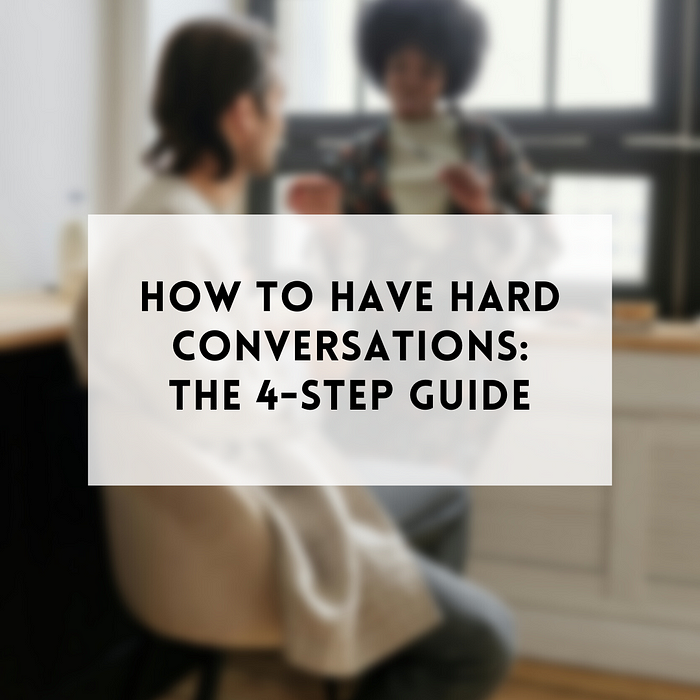
https://code.likeagirl.io/how-to-have-hard-conversations-the-4-step-guide-40409b86ace9

How many times have you dreaded having a hard conversation, or over-thought how it might transpire in anticipation of it being difficult, uncomfortable, or unproductive? Maybe you’ve even talked yourself out of having the conversation altogether, or expended too much time and energy trying to come up with the right thing to say. The inevitability is that most of us will have a hard conversation at some point in the not too distant future.
But do hard conversations really need to be so hard? My belief is that they don’t, and that there’s a lot to gain from staying in dialogue even when it feels uncomfortable.
Let’s be honest, discomfort and disagreement are a part of life. So, how do we get better at navigating hard conversations, and what do we stand to gain?
Let’s explore the benefits of having hard conversations, as well as four practical approaches you can start using today to make your interactions more productive.
Whether you’re a leader, facilitator, or just a human in the world, you’re bound to encounter hard conversations. And I know most people’s natural inclination is to tense up and avoid them, or over-prepare and overthink in an effort to figure out how to avoid discomfort, but that’s not actually a helpful tool for navigating a scenario we know will come up again and again. In fact, leaning in and being willing to feel uncomfortable has a lot of benefits, like:
These benefits are especially important if you’re in a leadership role. Leaders who embrace navigating difficult conversations can guide their teams through change, unlock creative potential, and promote better clarity and alignment.
All of this sounds great, right? So how do we do it?
In my professional work as a facilitator and my personal work being human in the world, I’ve found a few helpful tools for making tough conversations better.
Oftentimes, we expect people to think like us and present their views in a way that feels comfortable to us. And when that doesn’t go accordingly, we become frustrated with differing viewpoints and communication styles. Hence why the conversation feels hard.
But what if we stopped labeling “hard conversations” as such and just approached them as “conversations” (full stop)?
This reframing might feel subtle — or maybe it feels radical — but if you can shift your mind to not only be open to but also expect difference, this will go a long way in reducing your stress in conversation. It will also lend you the rich opportunity to deepen understanding, gain perspective, and potentially learn something new.